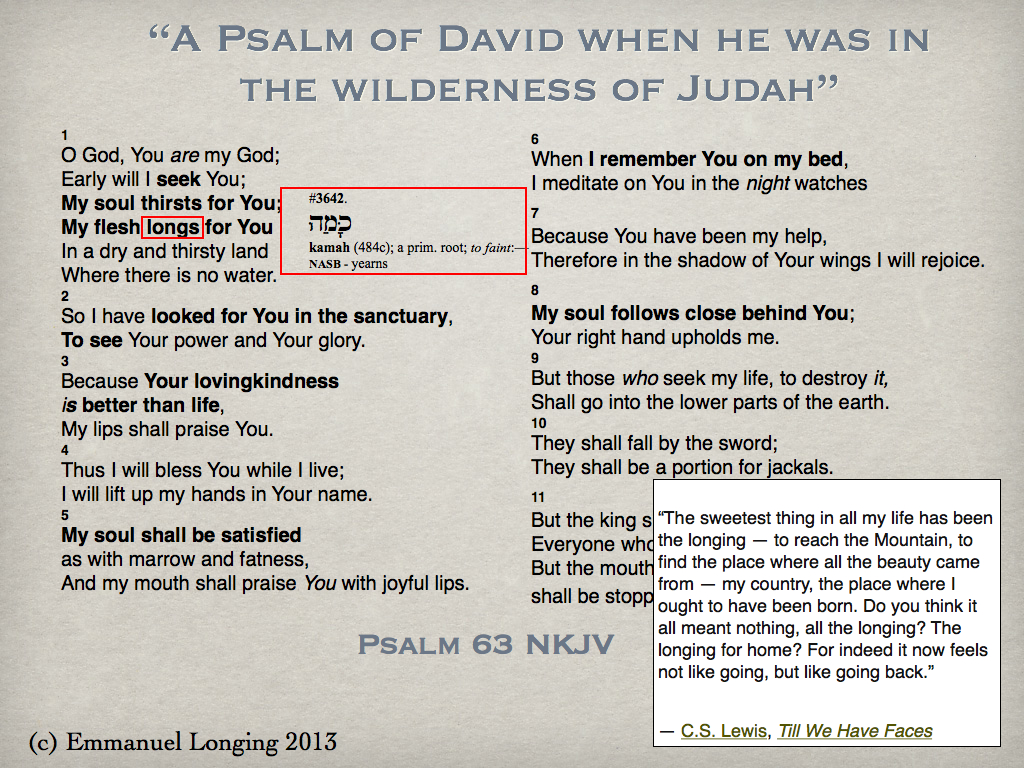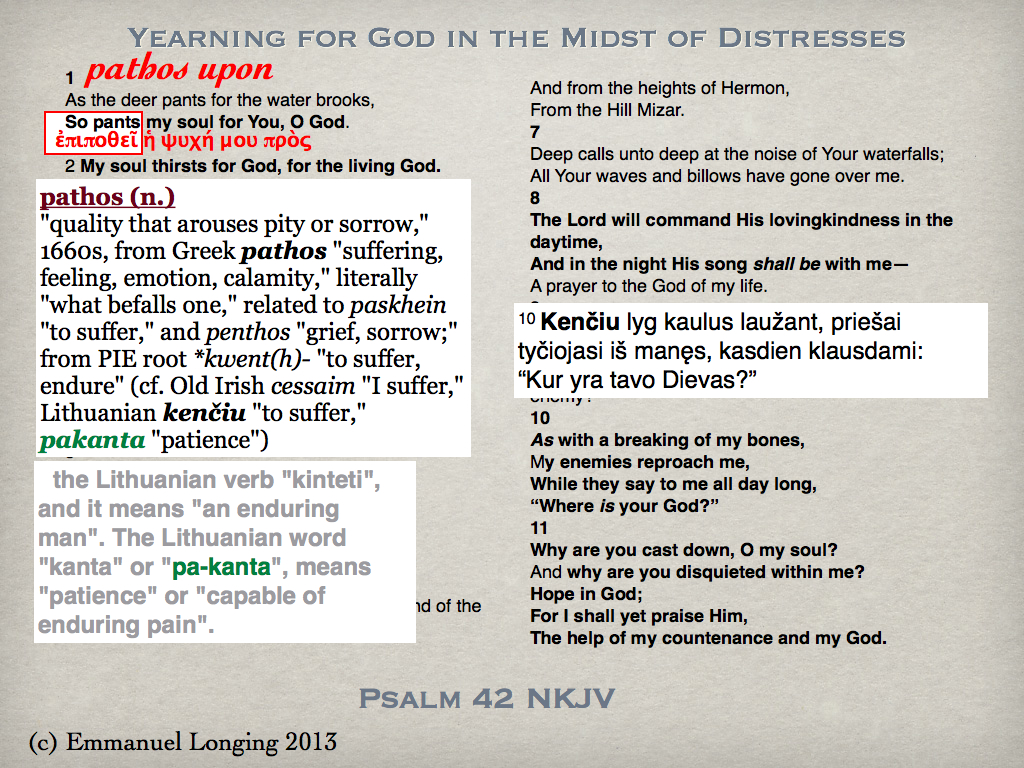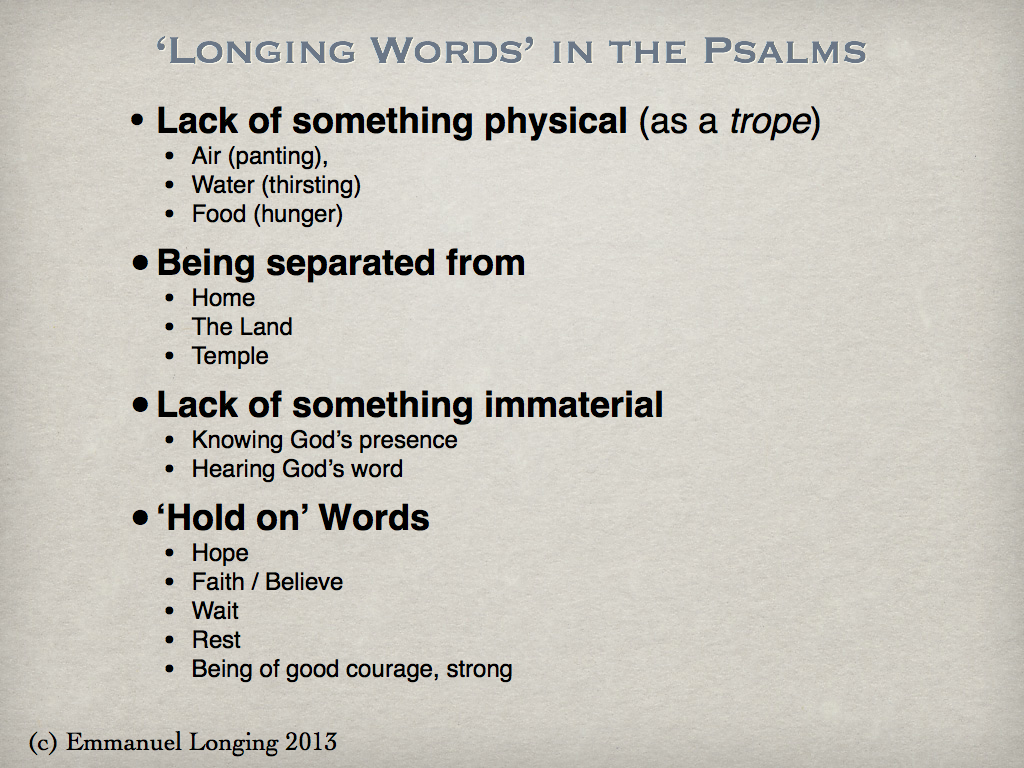 CS Lewis captures this exact longing idea:“The sweetest thing in all my life has been the longing — to reach the Mountain, to find the place where all the beauty came from — my country, the place where I ought to have been born. Do you think it all meant nothing, all the longing? The longing for home? For indeed it now feels not like going, but like going back.”
CS Lewis captures this exact longing idea:“The sweetest thing in all my life has been the longing — to reach the Mountain, to find the place where all the beauty came from — my country, the place where I ought to have been born. Do you think it all meant nothing, all the longing? The longing for home? For indeed it now feels not like going, but like going back.”  The word translated “pants” is, from the LXX (Septuagint, the ancient Greek version of the Hebrew Old Testament), epi-pathos. “Epi” is a Greek prefix that usually means “upon” and when used in situations such as this it signifies an intensification of the word to which it is attached, which is “pathos.” “Pathos” comes into English with approximately the same meaning but which meaning is not used frequently. It means:
The word translated “pants” is, from the LXX (Septuagint, the ancient Greek version of the Hebrew Old Testament), epi-pathos. “Epi” is a Greek prefix that usually means “upon” and when used in situations such as this it signifies an intensification of the word to which it is attached, which is “pathos.” “Pathos” comes into English with approximately the same meaning but which meaning is not used frequently. It means:
- pathos (n.) “quality that arouses pity or sorrow,” 1660s, from Greek pathos “suffering, feeling, emotion, calamity,” literally “what befalls one,” related to paskhein “to suffer,” and penthos “grief, sorrow;” from PIE root *kwent(h)- “to suffer, endure” (cf. Old Irish cessaim “I suffer,” Lithuanian kenčiu “to suffer,” pakanta “patience”)
The Lithuanian words cited above are closely related to the most ancient forms of our Indo-European language (PIE designates Proto Indo European, means the common language from which essentially all the ‘western’ languages arose).
- The Lithuanian verb “kinteti” means “an enduring man”. It is closely related to the Lithuanian word “kanta” or “pa-kanta”, meaning “patience” or “capable of enduring pain”.
So, Psalm 42:10 in Lithuanian, reads:
- 10 Kenčiu lyg kaulus laužant, priešai tyčiojasi iš manęs, kasdien klausdami: “Kur yra tavo Dievas?”
The key idea for us is Kenčiu (meaning an “enduring / suffering man,” one who is willing and able to endure such) is what it feels like to feel alienated from God especially facing the taunts of others (or my own inner nature).
We can think of longing as a feeling related to being absent from somewhere we love and wish we could be. But longing can be for a time (or era), not just a place. Longing can be for many different objects or experiences. Consider the following examples:  Let us now look closely at four key words that arise from the 12 Line poetic passage that began our study.
Let us now look closely at four key words that arise from the 12 Line poetic passage that began our study.